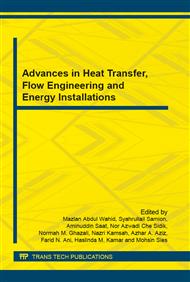p.438
p.443
p.449
p.454
p.459
p.469
p.474
p.479
p.484
Investigation of Intake Valve Strategy on the Cylinder Deactivation Engine
Abstract:
There are many technologies that being developed to increase the efficiency of internal combustion engines as well as reducing their fuel consumption. In this paper, the main research area is focus on cylinder deactivation (CDA) technology. CDA mostly being applied on multi cylinders engines. CDA has the advantage in improving fuel consumption by reducing pumping losses at part load engine conditions. Here, the application of CDA on 1.6L four cylinders gasoline engine was studied. One-dimensional (1D) engine modeling is performed to investigate the effect of intake valve strategy on engine performance with CDA. 1D engine model is constructed according to the 1.6L actual engine geometries. The model is simulated at various engine speeds at full load conditions. The simulated results show that the constructed model is well correlated to measured data. This correlated model used to investigate the CDA application at part load conditions. Also, the effects on the in-cylinder combustion as well as pumping losses are presented. The study shows that the effect of intake valve strategy is very significant on engine performance. Pumping losses is found to be reduced, thus improving fuel consumption and engine efficiency.
Info:
Periodical:
Pages:
459-465
DOI:
Citation:
Online since:
January 2016
Price:
Сopyright:
© 2016 Trans Tech Publications Ltd. All Rights Reserved
Share:
Citation:


